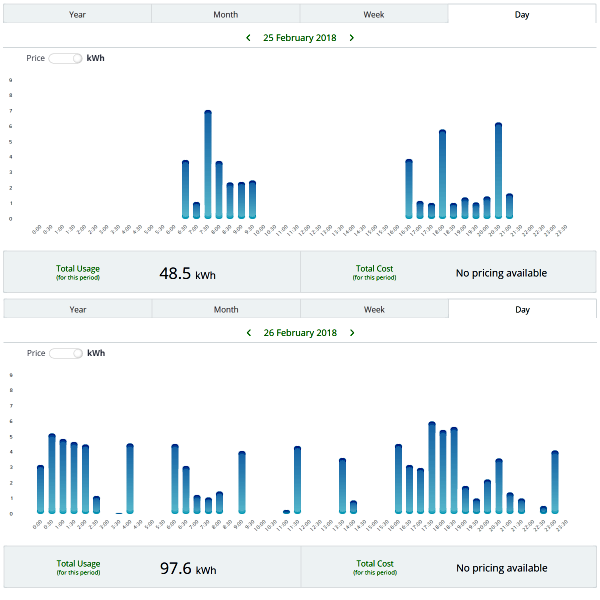They're really good.
* Customer service is responsive.
* They pay 5% interest on any credit in our account.
* They operate "fair" pricing - when it's time to renew our annual contract we get offered the same prices as new customers.
* We have smart meters which really are useful (unlike most). There's an online facility to look at graphs of your energy usage, by month / week / day / half-hour time slot. For example here's our electricity usage yesterday.
View attachment 130386
We used the detailed data on our gas consumption, together with detailed temperature data from our Hive thermostats, to work out how the heating system responds - how long it takes to heat up and cool down etc - and therefore how to tweak it to maintain a comfortable temperature with minimal energy usage. We reduced our gas bill by about 15% as a result.
The switch over was totally painless. We have smart meters do we don't need to worry about readings, but previously they would email us to remind us that readings were due and we would enter them via the website. Easy.
All in all, highly recommended.



